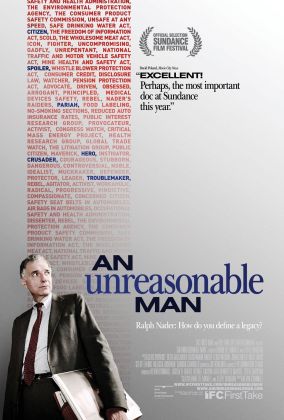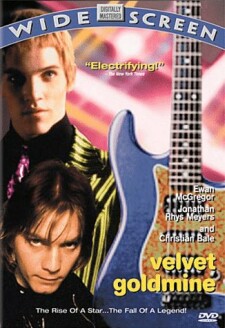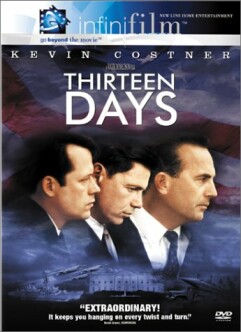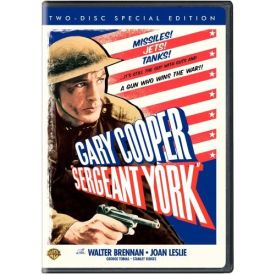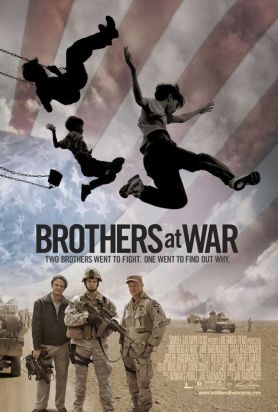Event Horizon
Event Horizon written by Philip Eisner and directed by Paul Anderson,
is set in 2047 and stars Laurence Fishburne as Miller, the captain of a rescue
space ship called USAC Lewis and Clark which is going to see what happened to
another ship, the Event Horizon, that got lost on a trip to the stars and is now
floating around Neptune, apparently abandoned. With him he is taking Dr. Weir
(Sam Neill) who built the Event Horizon and supposedly invented the
“gravity
drive,” which was to have taken it to
Proxima Centuri at faster than the speed of light. But it seems to have taken a
wrong turn and fetched up instead in hell. Now, for some reason unexplained, it
is back, sans crew but crawling with some kind of creepy stuff which
conveys to the crew of the Lewis and Clark hallucinatory experiences involving
events from their past about which they feel guilty.
This is about as much as we can make out of the plot, which is even more
incoherent than that of Conspiracy Theory. The sound track is so loud,
both with sound effects and music, and so much of the dialogue is shouted, that
we can hardly make out what is going on. And when we can make it out, we
can’t understand it. Why do the doomed
crew of the Event Horizon, a tape of whose final moments the Lewis and Clark has
acquired, speak in Latin? Why is the Lewis and Clark suddenly racked with
explosions and why, after the crew have with great pains repaired it, is there a
wash of blood that almost drowns them? Why, above all, is Weir determined to
destroy the Lewis and Clark and take his companions to hell with him?
It is typical of the film’s truly
heroic use of non sequitur. A little mystery, as in Love Serenade, is
always an attractive thing in a movie, but when everything is mysterious,
including why people are saying and doing quite ordinary things, it is just
boring. Something—actually quite a lot of things—have to make sense.
But this film seems to delight in gratuitous mystification. For instance, near
the beginning of the film we see Weir (who at this time is a sympathetic
character) applying a straight razor to his throat, preparatory to shaving, as
the blade touches the skin, there is a super-loud noise of a door in the space
ship closing and a cut to the space ship. What has this got to do with shaving?
What is supposed to be scary about the door?
It’s just a loud noise to make us
jump.
And then there is the conflict among the crew members, similarly unexplained.
When the Lewis and Clark approaches the Event Horizon and clamps itself to the
side of the abandoned ship, Weir says to the pilot, Smith (Sam Pertwee),
“Careful!
That’s not a load bearing
structure!”
“It is
now,” says the truculent Smith, as if
his desire to be rude to Weir has overriden any merely prudential
considerations, such as the undesirability of going wheeling off into space
clutching a piece of the other space ship. Likewise, when the doctor tries to
explain something scientific, Cooper (Richard T. Jones) shouts at him,
“Don’t
give me that physics s***!” Later,
when Starck (Joely Richardson) figures things out (as much as they ever are
figured out here) and approaches the Captain with her
“theory”
about how the hallucinations they are all suffering from are a kind of immune
reaction set up by some much larger organism of which they have suddenly become
a part, he replies by shouting: “I
don’t have to listen to
this!” Why
wouldn’t he want to? Why are all these
characters angry with each other?
Well, maybe it is because they are in hell and
don’t know it. Weir says that his ship
“tore a hole in the
universe” and found itself not among
the stars but “in another dimension, a
dimension of pure chaos, of pure
evil.” But then why is he hell-bent
(you should pardon the expression) on returning to hell? Why is he suddenly
determined to take the others there, or kill them? I thought hell was supposed
to be a place people would wish to avoid. So maybe Weir is the devil?
“The gateway is open and you are all
coming with me!” he screams at the
others. He appears to put his own eyes out, claiming that he
won’t need them in hell, but later
he’s got them back again.
“Pure
chaos” is right! But it is more funny
than horrifying. If some of the crew of the Lewis and Clark escape from the
Spaceship from Hell (I’ll never tell!)
it will only be to return to a world quite as chaotic themselves.
Discover more from James Bowman
Subscribe to get the latest posts to your email.


